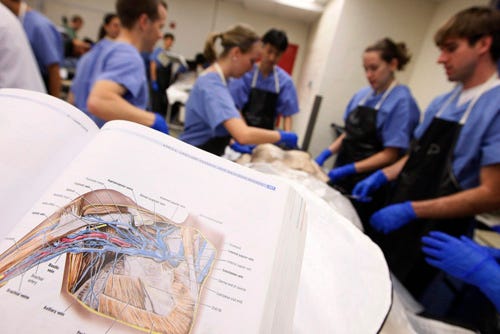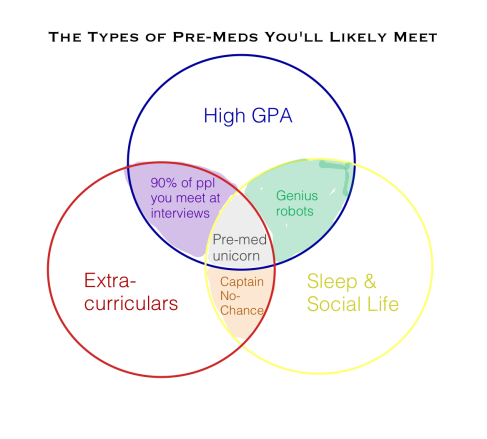 Find candidates not with a perfect transcript, but with a genuine passion for providing care to society
Find candidates not with a perfect transcript, but with a genuine passion for providing care to society
Have you ever went to the doctor for an operation or a standard checkup, and been treated callously by the very person who was supposed to provide you with care? The current Canadian medical school admissions system fails to provide our society with good doctors because the criteria used to select them is outdated and ineffective.
Admissions committees across the country are sitting down and making decisions on which candidates will eventually be tasked with treating our children, elders, and selves. Unfortunately for us, those individuals will be delivering babies, performing X-rays, and saving heart attack patients with an abject apathy unbecoming of a profession of such prestige and respect. Why?
Admissions committees measure aptitude for providing medical care through GPAs, percentages, and scores.
Medical care is essentially a hospitality or customer service practice, just with much less margin of error. Physicians absolutely do need to possess an unparalleled analytical ability and uncompromising attention to detail, but to what degree does a perfect GPA measure this ability compared to someone who is simply great? And at what cost was that perfect GPA achieved?
The standard student selected to treat our loved ones typically has an outstanding record of class marks and an astronomical percentile score on their MCATs, but a sparse history of building genuine social initiatives, growth of interpersonal skills, and development of innovative solutions to ambiguous problems. These are students with few leadership experiences, who spend their afternoons in libraries, and volunteer a few hours a week cleaning bedpans at the local hospital. Unfortunately, this is simply not good enough.
This imbalance in students is not of their fault; instead, the systemdemands an unrelenting tunnel vision towards grades to the expense of meaningful accomplishments. This causes pre-meds to value straight A’s more than the university experience. They study endlessly, and volunteer a couple of hours a week at the hospital to show the admission committee their compassion and experience in a healthcare setting. The problem is that these students (who will invariably get into medical school, because of their high grades) are not taking the time to contribute to an activity that they are passionate about, and as a result, they haven’t had the chance to develop genuine passion, leadership abilities, and teamwork.
“It is painful to watch unsocial, un-empathetic, and often aloof classmates of mine barely interacting with patients and moving on in medicine because they were just good at taking standardized tests.” — SH
In the past, the understanding that “a smart but socially-inept doctor is better than a nice but incompetent one” served true in the context of malpractice lawsuits, insurance companies, and government regulators. Today, however, an increasing number of students with above average marks and a genuine interest in healthcare are rejected in favor of those with soaring grades but little else to show.
The status quo is also to blame for acceptance of students who are poor candidates in later years. A recent study from University of Minnesota shows that medical schools emphasize academic ability in the earlier years of school, then the importance of interpersonal traits in the later years. Unfortunately, admissions committees seem to place high importance on the academic abilities of their candidates, perhaps with the assumption that the interpersonal skills will simply come naturally to the students later on.
How can medical schools change?
Many medical schools in Canada have already started a shift towards valuing the interpersonal skills of candidates. But the evaluation of the applicants are still heavily in favour of academic ability, which simplydoes not indicate the success of a future physician. Many medical schools have high GPA cut-offs upwards of 3.8 on a 4.0 scale.
Schools can begin a shift in the culture of healthcare by starting with its people. Lower the threshold requirement for grades and MCAT scores to what indicate a high analytical ability without filtering out those who are intelligent but chose to spend their times on things other than studying. Evaluate candidates that pass the lowered threshold on their leadership, interpersonal skills, and genuine passion for healthcare and other worthwhile organizations. Refuse to accept the status quo for what it is, and seek those who have the compassion, interest,and skills that you would want in the physician treating your loved ones.
Have the courage to change history, admissions committees. Otherwise, you simply perpetuate the crises of low-quality physicians that you are mandated to resolve.
Co-written with Ziming Yang.
